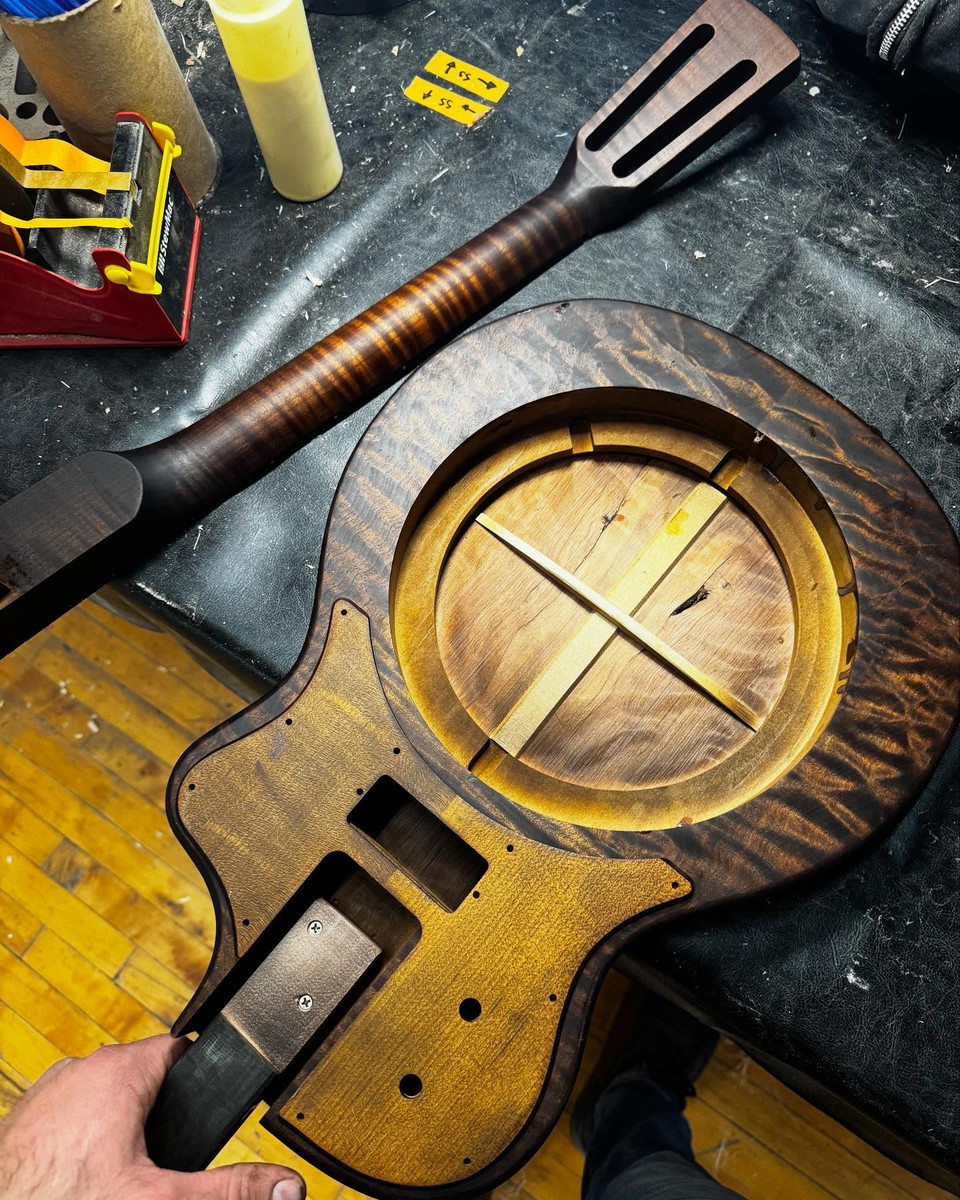Gear
Gear

I was talking with a customer the other day about what tuning and strings he wanted his steel tricone sent out with. He was planning and keeping it in Eb open D and didn't know what gauge he should use.
Normal stuff. The difference was that this particular customer plays in a very popular band. He wrote a song that 21 years after its release still gets 100,000 people every Saturday during football season singing together.
Early on in my guitar making career whenever a full-time musician came along I noticed that I expected them to be the pickiest of the bunch- needing a very specific tool for a very specific job. I started rambling on about options. But without fail the situation was like above - "Just build whatever you build I'll figure it out." Sure they had a lot of gear but they didn't try to control the outcome. They wanted tools that they had to figure out.
Malcolm Gladwell has an example of this in his book, "Blink". A foreign country was looking for a city that would be willing to store nuclear waste nearby. They offered one city money and they refused. They offered another more money and appealed to their patriotism and they also refused. They went to a third and leaned on the patriotism hard and left out the money - and they agreed. It turns out via brain scans that the part of the brain the governs altruism and the part that governs self benefit can't really play together at the same time.
Could that mutual exclusivity be true with gear and creativity? I've noticed that the people who write music and play guitar for a living barely know what strings they use. Their mental resources are directed solely at one goal - creating inspiration. Everything else is a distraction. Is being into gear and specs and new stuff bad? No. Does spending energy there cost us something? Well isn't "Everything costs something," the great lesson of Growing Up? We spend half our lives acting as if we have enough time to do everything we want, enough time for everyone, and all the physical and emotional energy required. The next half isunderstanding that's not true and how to make tough decisions on how to direct our finite resources.
The answer is like most of the big questions - balance. Are we using gear talk to hide our heads in the musical sand and avoiding letting something new and maybe a bit uncomfortable taking us to some new and exciting musical land? Are we trying to make the gear search about "optimizing" so that we can stay in the musical rut we create for ourselves?
Something to consider.
Matt

